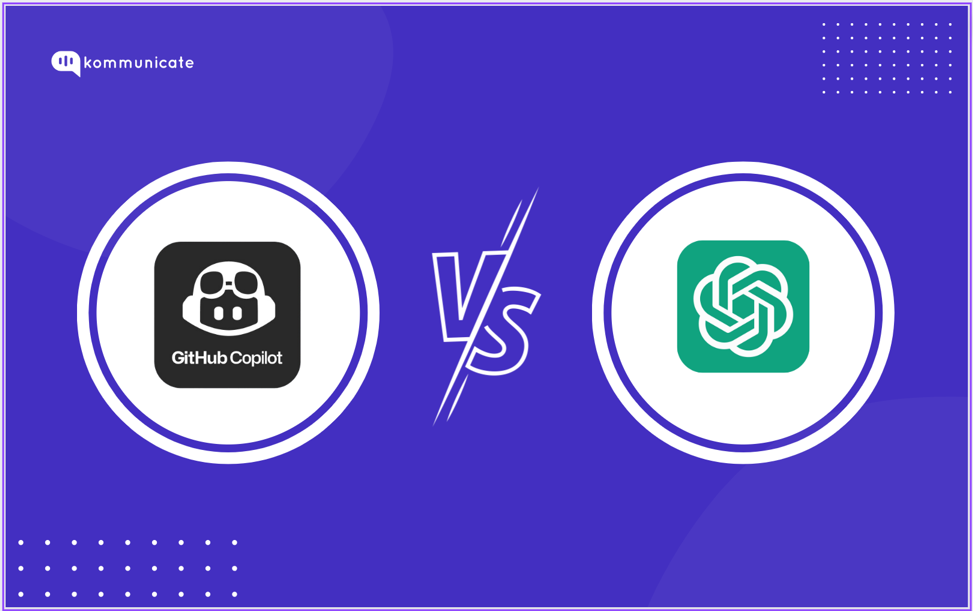GitHub Copilot vs. ChatGPT: Which is the Better Coding Assistant?
Coding assistants have revolutionized the programming landscape by boosting productivity, minimizing repetitive coding tasks, and aiding in debugging. Two prominent players in this arena are GitHub Copilot and ChatGPT. Each comes packed with unique features and strengths that cater to different programming needs. Let's delve into a detailed comparison to help you choose the best coding assistant for your projects.
GitHub Copilot
GitHub Copilot is an AI-powered coding assistant developed by GitHub in partnership with OpenAI. It seamlessly integrates into popular code editors like Visual Studio Code and boasts support for various programming languages. Copilot excels in suggesting code snippets, automating repetitive tasks, and completing entire functions with a single prompt.
- Contextual Code Suggestions: Offers tailored code suggestions based on context and coding patterns.
- Multi-Language Support: Supports a wide array of languages such as Python, JavaScript, TypeScript, Ruby, and more.
- Real-Time Integration: Provides instant suggestions while coding, enhancing efficiency.
The key advantage of GitHub Copilot lies in its seamless integration with code editors, enabling developers to write code faster by suggesting pertinent lines based on the existing code.

ChatGPT
Developed by OpenAI, ChatGPT is a conversational AI model that serves multiple purposes including code generation, debugging, and explaining complex code concepts. ChatGPT can be accessed through a web interface or API, catering to a wide range of applications beyond coding.
- Natural Language Interaction: Processes natural language queries to generate code snippets.
- Explanations and Debugging: Provides detailed explanations and aids in debugging by offering logical steps and suggestions.
- Flexibility in Use Cases: Versatile enough to handle diverse tasks like writing, research, and coding assistance.
ChatGPT shines in its ability to grasp natural language queries and provide comprehensive solutions. Apart from code suggestions, it excels in clarifying coding logic and resolving issues.

Comparison Based on Core Features
Let's compare the core features of GitHub Copilot and ChatGPT to understand their differences:
Code Suggestions and Completion
GitHub Copilot stands out in providing tailored code suggestions within IDEs, offering autocomplete features and suggesting multiple lines of code that match the context. On the other hand, ChatGPT generates code based on text prompts, accommodating complex requirements but requiring more precise inputs.
Debugging and Error Handling
While GitHub Copilot aids in reducing syntax errors and generating correct code snippets, ChatGPT offers comprehensive debugging assistance by analyzing errors, suggesting fixes, and explaining the rationale behind issues.
Language Support
GitHub Copilot excels in popular languages like Python and JavaScript but may not perform as effectively in niche languages. ChatGPT, with its broad training data, supports a wider range of programming languages, making it versatile in handling various coding scenarios.

User Experience and Ease of Use
GitHub Copilot provides a seamless experience by integrating directly into IDEs, eliminating context switches. Alternatively, ChatGPT, as a separate platform, necessitates switching between coding environments and the ChatGPT interface. However, its natural language interaction simplifies understanding complex topics.
Learning and Knowledge Transfer
GitHub Copilot aids experienced developers in speeding up tasks but may lack detailed explanations. On the contrary, ChatGPT serves as a robust learning tool by offering detailed insights and walkthroughs, suitable for both beginners and seasoned developers.
Pricing and Accessibility
GitHub Copilot offers a paid subscription model with free access for students and open-source projects. ChatGPT provides free and paid plans, with the premium plan offering advanced capabilities. The pricing structure of ChatGPT caters to a broader audience.
Collaboration and Team Usage
GitHub Copilot focuses on individual use within IDEs, lacking collaborative features. In contrast, ChatGPT supports collaboration by generating detailed responses that can be shared with team members, making it ideal for team coding efforts.
Understanding the strengths and ideal scenarios for using GitHub Copilot and ChatGPT can significantly enhance productivity and efficiency in your coding endeavors. GitHub Copilot excels in swift code completion and real-time suggestions within IDEs, while ChatGPT offers versatility in use cases, aiding in learning, problem-solving, and collaborative coding efforts.
Both GitHub Copilot and ChatGPT serve as formidable coding assistants, each excelling in different facets of programming. GitHub Copilot's strength lies in code generation within IDEs, whereas ChatGPT offers a wider array of capabilities including debugging and code explanations. Your choice between these two tools should align with the specific requirements of your project, whether focusing on speed and productivity (GitHub Copilot) or learning and flexibility (ChatGPT).










